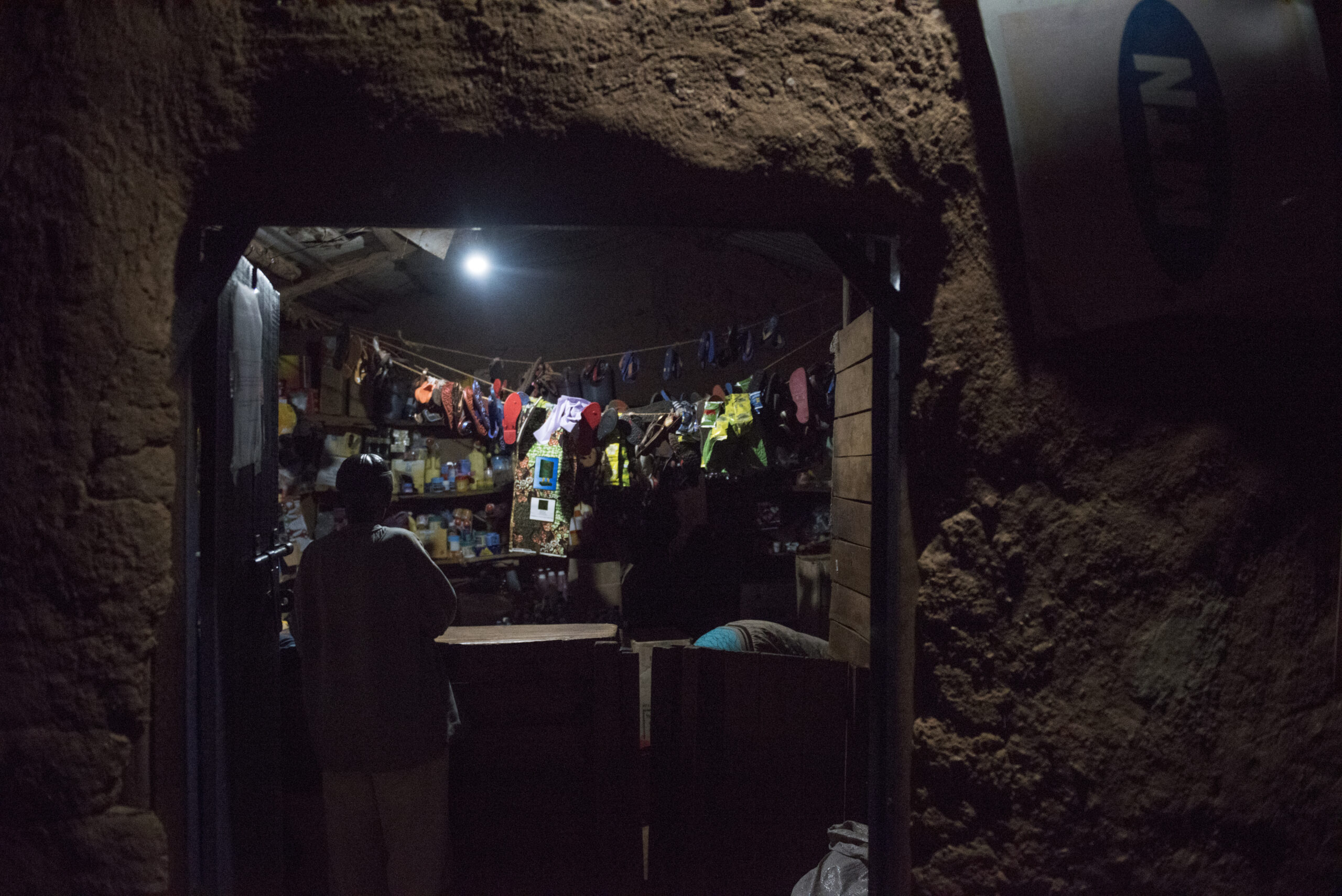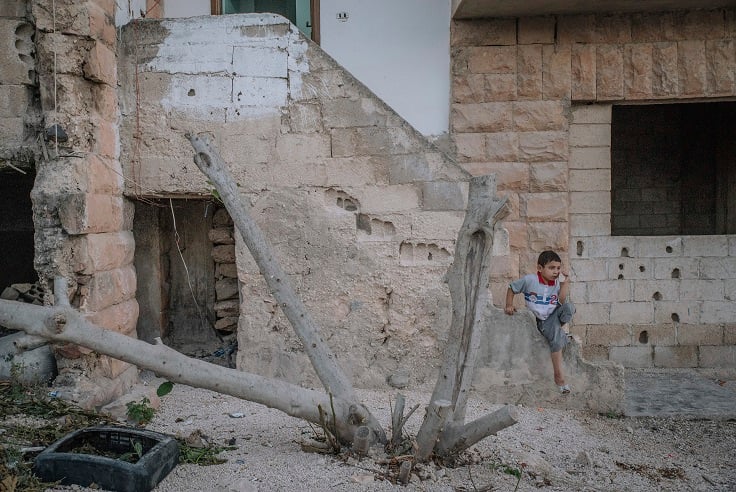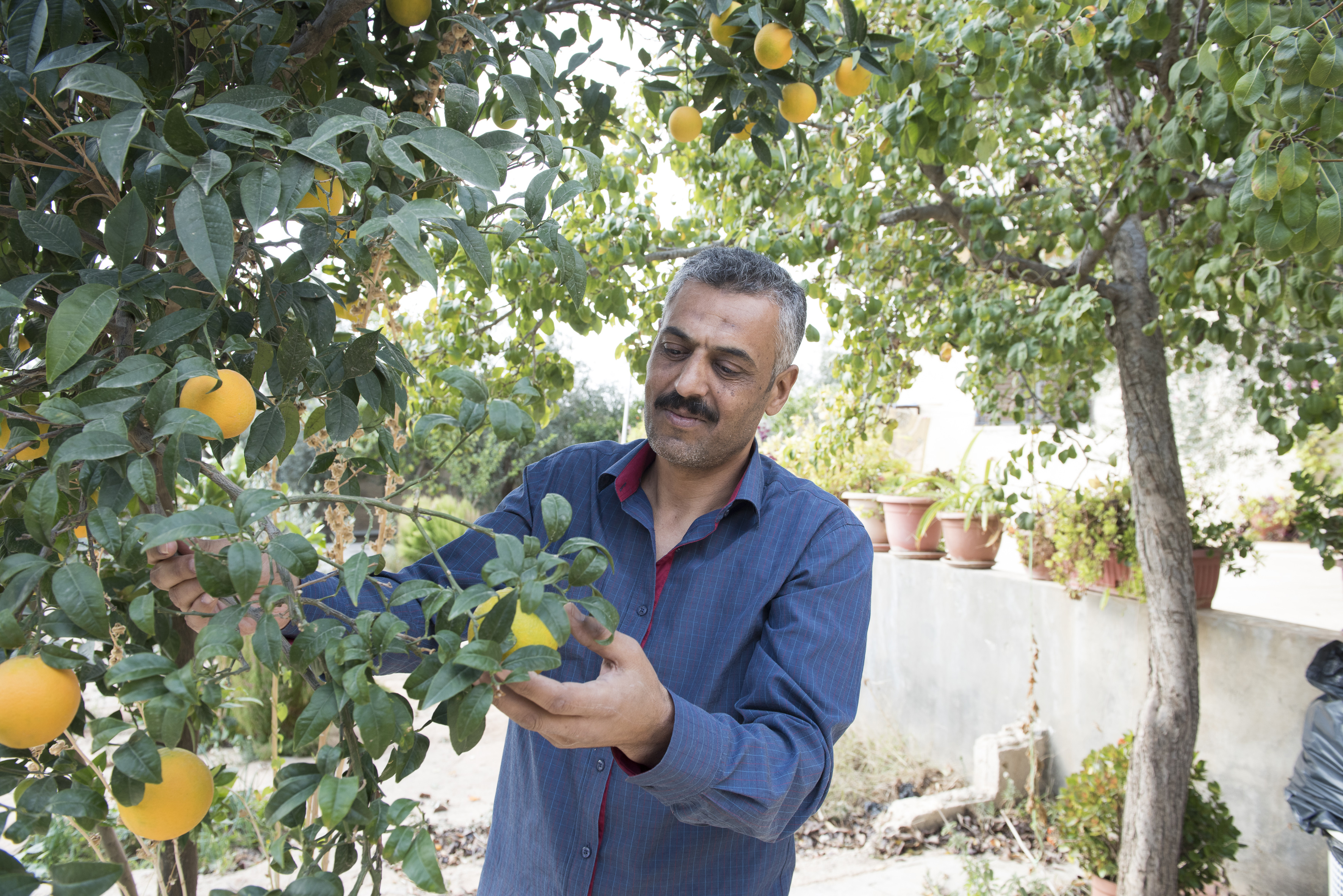Renewable energy for refugees
Creating a better world
Working together, IKEA Foundation and UNHCR, the UN Refugee Agency, are powering up refugee communities and creating a better world for thousands of people who have been forced to flee home.
Families in exile often struggle with energy poverty, which leads to insecurity, reduced development opportunities, health problems and environmental degradation. Children and women are disproportionately affected.
Together with IKEA Foundation and Practical Action, UNHCR is providing refugees and their host communities access to renewable energy. We will support 60,000 children and families in Rwanda and Jordan, so they can lead safer, healthier and more productive lives.
Rwanda

The lack of renewable energy in and around refugee camps across Rwanda has remained an ongoing challenge. For example, cooking meals, studying at night or growing businesses are time-consuming and often difficult to complete.
Thanks to IKEA Foundation, we are making sure that 50,000 people, in and around Kigeme, Nyabiheke, and Gihembe refugee camps, have increased access to renewable energy for lighting, cooking and essential appliances.
Jordan

The financial situation of Syrian refugees in Jordan is troubling: approximately 80% live below the poverty line. They struggle to pay their monthly expenses – of which rent and utilities consume the most income.
In the city of Irbid, we are increasing access to renewable energy for 10,000 refugees and people from the host community. By providing solar-powered water heating and electricity systems to low-income homes, schools and community centres, we, together with IKEA Foundation, are making sure people can live with dignity.
Kirakunda, the student
Kirakunda, 16, tries to complete her homework in Rwanda’s Gihembe camp, but the lack of light makes it hard for her to see. Credit: ©UNHCR/Hannah Maule-ffinch
Kirakunda is a 16-year-old Congolese refugee. She is polite, well-mannered and reflects a maturity and quiet confidence beyond her years.
She says that her family fled from the Democratic Republic of the Congo to Rwanda because of violence. When asked about her life in Gihembe camp, Kirakunda reflects, “Life in the camp is not easy… we have a number of needs that we cannot meet.”
Despite these challenges, Kirakunda finds strength in Rwanda’s progressive education policies that enable her to attend school.
“The thing that makes me strong is getting an education,” she says. “My favourite subject is biology.”
She smiles as she shares her dream: “When I grow up I would like to be a doctor.”
For Kirakunda, however, studying to become a doctor is challenged by her inability to complete her homework.
Her daily routine consists of waking up and cleaning the house, going to school, coming home to do house chores and cooking dinner. “By the time I finish cooking, I feel tired. I’m sleepy and I don’t have time to review my subjects.”
When she does have energy, Kirakunda tries to do her homework. To study without electricity, Kirakunda relies on a solar lantern, whose power is limited by the lack of sun or the prevalence of rain. She also tries to use candles, which offer limited light and burn through quickly.
The option of studying outside the camp, in a place where electricity may be available is not allowed because the lack of light in the camp makes it unsafe for girls and women to walk around. “I am not allowed to go outside in the night,” Kirakunda says.
The idea of electricity in the camp excites her: “Light would make it very easy to study.”
Facts & Figures
144,662
refugees are in Rwanda
752,193 refugees are in Jordan
46,504
refugees are in Rwanda’s Kigeme, Nyabiheke, and Gihembe camps
refugees are in Jordan’s Irbid governorate
Most refugees in Rwanda come from DRC and Burundi
Most refugees in Jordan come from Syria, Iraq and Yemen
92% of refugees in Rwanda live in camps
83% of refugees in Jordan live outside camps in urban areas
Figures as of December 2020
Nahlah, the single mother
Jordan. Nahlah 43 and her son Qusai (11) on the roof of her home with a solar-powered water heating system. This was installed on her roof in 2019, through a renewable energy project supported by the IKEA Foundation. © UNHCR/Hannah Maule-ffinch
Amongst a sea of concrete roofs, Nahlah and her youngest son Qusai stand in front of their home’s new solar-powered hot water system. “Now, we are not afraid of turning on the tap,” she says. “We have warm water always.”
This wasn’t always the case. For almost two years, Nahlah and her family were displaced inside Syria. “Sometimes, the places we had moved to were bombed, and so we had to flee to another place,” she explains.
With the situation becoming more and more dire, they fled to Jordan, arriving November 2013.
Today, she lives in a one-bedroom apartment in Mafraq, with her three youngest sons and daughter. Widowed after her husband was killed in Syria, Nahlah is solely responsible for looking after her children and keeping a roof over their heads. Paying rent and bills soon proved difficult; the family would only use their water heater for showers, rather than using it to wash dishes or clean up before prayers.
“We were very afraid to even put the heating [on] during winter because the electrical bill would be very high,” she says.
But that has changed. Six months ago, a solar-powered hot water system was installed in her home, as part of the Renewable Energy for Refugees (RE4R) project. Supported by UNHCR, in partnership with IKEA Foundation and Practical Action, the project oversees the installation of solar-powered hot water systems in houses in Jordan, owned by locals. The installation is free of charge. In exchange, homeowners agree to reduce the rent they charge their refugee tenants for a whole year.
For a single mother like Nahlah, this initiative has made a huge difference. Her rent has gone from 180 JOD (roughly $250) per month to 158 JOD. And her electricity bill has been cut in half.
With this support, Nahlah can look to the future. She wants her children to “be healthy and safe, and to succeed and graduate, and to always be living in a safe place.”




